Belgian synth trio TELEX are to release a new box set of their studio albums on Mute this Spring.
Their 1979 debut album ‘Looking For Saint-Tropez’ featured three unusual and striking electronic reinterpretations of rock ‘n’ roll through the ages including ‘Rock Around The Clock’, ‘Twist À St. Tropez’ and ‘Ça Plane Pour Moi’. Pre-dating SILICON TEENS, the fictional teen synth band devised by Daniel Miller, the new partnership with Mute is highly fitting with the one-time apprentice providing a new home for the sorcerer.
As well as ‘Looking For Saint-Tropez’, the ‘TELEX’ box set will also contain ‘Neurovision’ (1980), ‘Sex’ (1981), ‘Wonderful World’ (1984), ‘Looney Tunes’ (1988) and ‘How Do You Dance?’ (2006); all the albums have been remastered and newly mixed from the original tapes by band members Dan Lacksman and Michel Moers.
The Brussels-based threesome of Michel Moers, Dan Lacksman and Marc Moulin were already experienced hands when they formed TELEX in 1978. But they trailblazed and subverted during their imperial phase, crossing paths with SPARKS and YELLOW MAGIC ORCHESTRA along the way. Representing Belgium at the 1980 Eurovision Song Contest, their bouncy song ‘Eurovision’ with its deliberately banal lyrics sending up the whole charade featured a Situationist performance that puzzled most watching on TV but delighted many others.
Recognised as techno, house and synthpop pioneers thanks to seminal tracks such as ‘Moscow Diskow’ and ‘Haven’t We Met Somewhere Before?’, TELEX were to later remix DEPECHE MODE and PET SHOP BOYS. But after Marc Moulin sadly passed away in 2008, TELEX were formally retired.
Blessed with another opportunity to present their impressive legacy to a new generation and established music fans who may have missed them first time round, Michel Moers and Dan Lacksman spent a joyful hour chatting to ELECTRICITYCLUB.CO.UK about their time as TELEX…
TELEX joining the Mute family is quite appropriate isn’t it, like it was meant to be?
Michel: It should have been earlier… *laughs*
We had a very long contract so when we could get out of it, the first thought was “Mute is the best”; so we tried and it was the right move, we didn’t ask anybody else. The next day, we received an email from Daniel Miller saying “yes OK, let’s talk”.
Dan: We couldn’t believe it because it was our dream. “What would be the best company to reissue the albums?” and of course it was Mute. It’s great.
Michel: We loved ‘Warm Leatherette’, it was like a punch! Then SILICON TEENS came after TELEX, but at the time I wasn’t aware it. KRAFTWERK were a big influence but as “The Belgian KRAFTWERK” (*laughs*) with Belgian humour and cartoons, it was more related to our environment and personalities. English humour is better known around the world.
Dan: Belgian humour quite is surreal, similar to Monty Python which was very popular here because it was completely absurd. Also there are two cultures in Belgium, the French one and the Dutch one. It’s a mixture of both. I am French speaking but my grandfather was Flemish so I can feel both sides in me and a lot of Belgian people, especially in Brussels, they are a mixture of cultures.
Michel: In Belgium, we are much closer to English humour than French humour.
There are new mixes of the albums but what do you mean by that, as that might ring alarm bells for some, like dance remixes etc? *laughs*
Dan: It’s not every title, it’s about 60%… when we first started to remaster, some of the mixes we were listening to and thinking “it’s a pity, there is too much reverb” or whatever. But then the idea came to try a new mix but sounding similar to the original. So we decided to try one and if we don’t like it, we don’t do it! But it worked very well, so well that finally we listened to every album and we decided which titles we thought were ok for mastering and which ones we should attempt a new mix. And so that’s what we did.
Michel: So it’s new mixes, NOT “remixes”, that is more related to dance… the main thing we did was to take tracks away…
Dan: …to simplify…
Michel: The first album was our main reference and we probably didn’t succeed after because there were so many new machines to try… so with these new mixes and less tracks, the six albums are more a whole, you can really feel more of a thread….
Dan: All the songs are original, we didn’t replace anything, the vocals are all the original ones and no cheating, well…
Michel: …sometimes calibrating my timing or my pitch! *laughs*
Dan: The bass was played manually in those days, no sequencer which is why it was grooving, Marc had an incredible groove but sometimes, there were parts we replaced but very few really…
How did ‘Moscow Diskow’ come together, the idea of going to a club behind The Iron Curtain?
Michel: The original idea was to make lyrics, French words that English or American people were using, like “fantastique”. It was putting all these words together, some more personal ones like my girlfriend was called a “French Garçon” and things like that. It came together with the idea of a train…
Dan: So I thought, what about the hi-hat, it would be the train, a steam train which would be a completely surrealistic concept. So I started from there and added a kick drum and claps, there is no snare and I did the “woo-woo” sound with two oscillators and an envelope controlling the pitch. It was done very fast. We didn’t specify a 130 tempo, it was just a knob, like “what about this?”. We had to first record the drums on three tracks before we could do the keyboards as always, it was very spontaneous. It came like this, et viola!
Michel: At the time, the Moscow graphics were very well used, we liked to play with clichés… if we were writing the song now, we would choose another town…
‘Rock Around The Clock’ is TELEX’s only UK hit and the ‘Top Of The Pops’ performance is still great performance art… but it crossed over, even my mother liked it!
Michel: We also did a cover of ‘La Bamba’ and it is also slower than the original like ‘Rock Around The Clock’ so that old people can even dance to it *laughs*
The idea was to show who TELEX were, as people would know the original and hear the difference. It was an easier way to show who we are and that the audience may like an original song of ours. TELEX were like making a “History of Music”, so ‘Rock Around The Clock’ is rock, ‘La Bamba’ is South America, ‘Dance To The Music was black music…
Were you surprised to get the call to be on ‘Top Of The Pops’?
Michel: No, because maybe the reason we were asked was because they had a new Quantel machine to make new kinds of images and special effects. We were probably the only band around at that time with electronics where they could make these images that had not been made before. So it was more for them to play with their machine *laughs*
Dan: The rule on ‘Top Of The Pops’ at that time for international artists was that everything had to be live, but they wanted to experiment with this machine. So the day before, we went to the BBC and they filmed us to prepare some effects that they would insert the next day when we were performing, they were running the effects in sync and then they would put the live image and some effects, so when we did the “da-da-da” and the picture swirling, it was great, it true that it fits with the music.
Was it your idea to read the newspaper or the ‘Top Of The Pops’ director? *laughs*
Michel: It wasn’t the director, his reaction was “Are they bored? They don’t want to be there” *laughs*
No, we liked sometimes to use the anti-cliché of pop music you know… in pop music, everybody is smiling and moving, so the idea was to do the contrary. One of the main comedy characters we liked was Buster Keaton…
Dan: …he never smiled!
Michel: So we thought, “what would he do?”… you didn’t dance, just *does swaying arm movement*
Dan: NO! *laughs*
PET SHOP BOYS did the newspaper thing in 2009, I don’t know if they got the idea from you?
Michel: They also don’t dance… at the end of ‘Eurovision’, I take a picture of the audience but now, everybody has an iPhone and is taking the picture so it’s funny. The idea was reversing the process.
So ‘Rock Around The Clock’ saw you covering an old song, you also covered an quite new song at the time ‘Ça Plane Pour Moi’ and Dan, you have a connection because you did the synths for Plastic Bertrand on ‘Tout Petit La Planète’? Was this cover deliberate because of your connections?
Michel: Well, it was to please our producer as it was the same record company *laughs*
Dan: But we thought it would be funny to do as it was a very fast track, to make it slower and add vocoder…
Michel: It was part of that “History of Music” idea, add some punk plus it was the only way you could make people understand the words! *laughs*
As the box set shows, TELEX became notable for their cover versions, which were your favourites and which songs do you wish you had recorded?
Michel: There are two that have not been released sung by me but they are probably not TELEX enough… my idea would be to keep the backing and have someone who sings well! *laughs*
With people who sing well, what they sing is usually boring to me. Maybe it’s not the same in England but over here, it’s for radio but the singers sound like…
Dan: …that’s maybe because of the voice program that is everywhere and it’s just physical performance, it’s not singing anymore… like why? Maybe people are just accustomed to it, even if it is out of tune, it doesn’t matter but when you stick Autotune on, you have no more feeling.
When you did ‘On The Road Again’ in 2006, had you been aware of ROCKETS’ version which similarly used vocoder?
Dan: I was not aware…
Michel: I was aware after… the idea of ‘On The Road Again’ was simply because we were making a new record after so many years of silence. Now I know the ROCKETS version but it was a few weeks after our version came out, Italian TELEX fans were sending me pictures of these guys full of blue. Often the same things can be produced all around the world without realising, like the invention of the telephone, we didn’t know.
So ‘Eurovision’, did the song come first or was it TELEX entering Eurovision that inspired it?
Michel: The song was written for Eurovision, but the idea was to make a photo of what it is, people being well-dressed and at that time there were borders… well, there are borders now! *laughs*
But the idea was all these borders were open for one night and after that, they would close and anyway, the image would go through armoured cables so it was like war. At that time, Peter Gabriel had written about something similar on ‘Games Without Frontiers’ and also Robin Scott as M with ‘Pop Musik’; in fact, we met him at Cannes before the contest and asked him whether he would be interested in making lyrics for us, but he said “I’ve done that already with ‘Pop Musik’”, so I finally did it myself.
Was there a selection competition back home?
Michel: Yes, we had one, there were 10 contestants and we won the competition… but when we were asked by the record company, we thought they were crazy, it was not what we really wanted to do, it was not our music. We thought about it for 2 weeks and said “let’s go for it” as it would be like the epitome of pop music.
So the country was behind you?
Michel: Maybe not the country, but the people at radio and TV on the jury liked it. But all the other competitors were very normal… *laughs*
Dan: Boring, nothing special… we were completely different…
So they were more like The Singing Nun, Dana or Nicole type of entry?
Dan: EXACTLY!
Michel: But The Singing Nun would have had a chance! *laughs*
I am already imagining in my head the idea of TELEX covering The Singing Nun song ‘Dominique’! *laughs*
Michel: In fact, Dan and Marc did it!!
Dan: We did an electronic version with Soeur Sourire, it was a complete flop! *laughs*
So back to Eurovision, how were you choreographing your performance and moves?
Michel: The moves began before because there were normally three rehearsals and we couldn’t achieve one. There was a rule that everything you hear had to be seen, so all the instruments. So if you hear a drum, there should be a drummer. But everything we had was in three Moog modules so there was nothing to see, that was the first argument in the first rehearsal. Then the other argument was about electricity!
Dan: Yes, they didn’t like us because everything was supposed to be live which was not correct, because they said we could come with a backing tape, but everything on tape must be on stage! Simple! So like with ABBA, it was a backing tape, they didn’t play for real but the voices were real. So for us, it was the same thing, we sent a tape but the “drums” I made with the Modular Moog, so you don’t see a drum, you just hear “drums”.
When we were starting rehearsals, the director says “STOP! I hear a drum, where is the drum?” So I had to explain the drum sound was made with this instrument. “OK, we don’t see anything” he said, but I asked if they gave us some electricity, we could push a button and see the sequencer going on… “OH NO! NOT POSSIBLE!” but the director asked if the singer could push a button and fake it. So Michel just pushed a button, nothing happens on the Moog, no wire, nothing so it was completely… and then the song went on and Michel couldn’t hear himself…
Michel: The real time, I couldn’t hear myself, I don’t know if they did it on purpose but I couldn’t hear the three backing singers so my voice is a bit stressed, that’s it! *laughs*
And then?
Michel: Just before our turn on stage, we met Johnny Logan…
Dan: He won by the way…
Michel: I said “I’m sure you are going to win” and he replied “If I win, it’s good for me but if you win, it will be good for music”, that was so nice.
So you wanted to win, or come last but how did you actually feel when Portugal gave you those points? *laughs*
Michel: It was very mixed in our mind… we were chosen to go and then our British and American record companies thought we would win! It was the 25th Anniversary of Eurovision and we heard they would like to change the rules… so they changed the rules to a public vote, so this was very difficult for us! At the same time, we could feel we couldn’t win and it took some years to recover some balance! *roars of laughter*
Dan: We didn’t take it especially seriously, but we were surprised that everybody else was so serious, it was almost a pity to see the two young girls Sophie & Magaly from Luxembourg completely destroyed and crying when they didn’t get points. We were sitting, we had nothing and understood “OK”, so we hoped we were last. And then suddenly Portugal gave us 10 points! WHY? And then Royaume-Uni give us one point (this is why the first box set is called ‘Belgium… One Point’) and Greece three points! We were not last and it was a poor group from Finland… everyone was very serious and we were a bit apart.
Michel: All the organisation was very strict, it was like being in an airport which I understand… we didn’t win but in the long run, people remember us and every year, we have 30 seconds of fame…
Dan: …because of the strange stuff that happened on Eurovision…
Yeah, I’m one of the guilty ones who keeps posting up the ‘Eurovision’ clip… *laughs*
Dan: You’re not the only one!
I don’t know if you are aware when ABBA won in 1974, the UK gave them nil point!
Michel: There’s a lot of politics now…
Dan: It’s more difficult than ever, you have the two semi-finals and then you have the final, it’s getting very completely crazy.
‘The Man With The Answer’ from ‘Sex’ seems to show an affinity with YELLOW MAGIC ORCHESTRA featuring the late Yukihiro Takahashi, did you feel a connection with any of the other electronic music acts?
Michel: At that time, no, we didn’t listen much to each other… it’s really funny but maybe we were a bit shy but we were on the same stage in Paris with YELLOW MAGIC ORCHESTRA on TV and we didn’t speak to each other which was stupid… but finally Harumi Hosono came to the studio to make a cover of our song ‘L’Amour Toujours’ with a Japanese singer Miharu Koshi.
Dan: Just an anecdote with Harumi Hosono, it was incredible because he could speak only Japanese, no English, no French; there was a French guy living in Tokyo to translate but he didn’t need him because for the work, we understood each other perfectly because it was the same equipment, the same way, it was fantastic, he would programme the sequencer and find the sounds, we were very close technically, those three days were really incredible.
Michel: It could be astonishing that we don’t really relate to your question because Belgium is so small and we were all working apart, we had other jobs, it’s not like having a success all around the world, we couldn’t live on just music. So we were not really part of an electronic scene like London where we would have to go out every night or even in Belgium because even if we were invited somewhere, we wouldn’t go. Also, we were a bit older than most people because we had done things before musically, so we didn’t have the same needs or same way to live. But Belgium is, well, was an island… *laughs*
But one act that you did connect up with was SPARKS. Was bringing them in to collaborate on lyrics on the ‘Sex’ album part of a conscious effort on TELEX’s part to be more international and accessible like on ‘Haven’t We Met Somewhere Before?’ and ‘Long Holiday’?
Dan: It was a coincidence because I was working with a Belgian singer called Lio with Marc Moulin at the same time as TELEX, she was an incredible big success and she was doing TV everywhere in the world. Once in Paris, she was on the same programme as SPARKS. Then Russell Mael proposed that she make her next album in English and offered to write the lyrics. So they arranged to work at my studio in Brussels but Lio never came! We were recording the ‘Sex’ album at the same time so we met, they listened to the album and proposed some English lyrics…
Michel: I had made some French lyrics that I couldn’t make work in English so it was ok.
Dan: So Russell and Ron stayed in Brussels, coached Michel with the singing and they liked the city and came back to make their own albums. They would take the tram to the studio and people would recognise them, so they would sign autographs and it was great, they really liked it *laughs*
Michel: The SPARKS tram! *laughs*
I always thought ‘Haven’t We Met Somewhere Before?’ should have been a hit single in the UK…
Michel: We didn’t write songs to be hits, it’s nice when it comes but we did things we wanted to hear.
In the UK, there was this strange thing of the ‘Sex’ album being released as ‘Birds & Bees’ with different tracks including a new single ‘L’ Amour Toujours’; you did two versions of ‘L’ Amour Toujours’ and I preferred the earlier one on ‘Birds & Bees’ over the reworked ‘Wonderful World’ version…
Michel: I think there are even more versions… *laughs*
At that time, we felt that song could be a hit and maybe we were searching for a way to make it more clear and that’s why there are different versions, maybe we didn’t make the right one. That’s the song Harumi Hosono made with Miharu Koshi. There are maybe 5 or 6 versions on the tapes… sometimes we lost our way because there were so many new machines… that was his fault! *laughs*
Dan: We experimented a lot…
Michel: So compared to KRAFTWERK, we didn’t make as many new songs and they made remixes… they also had a strong image, we didn’t really care about showing ourselves… someone once asked us after the 2006 album ‘How Do You Dance?’, “why do you make music like DAFT PUNK?”…
By ‘Wonderful World’, the digital technology had taken hold, how did you find working with it? ‘Raised By Snakes’ is good but it could be any variety of acts at the time?
Dan: It’s funny you mention ‘Raised By Snakes’ because it’s a pre-sampler track. I didn’t have the Fairlight yet there is this chord; I remember that we had the idea to put on this chord all the time so I put it manually into the multi-track. We put the chord on a quarter inch tape and I had a zero lock and a return button, so to record it, I played the multi-track, then I sent the chord “ding” and then I returned to zero ready for the next time. So it would have been more easier with a sampler but it was just before, it’s funny. Of course, the result is the same.
With the Fairlight from 1983 plus the Synclavier, these were the first digital synthesizers and it was impossible not to have one… on top of TELEX, I had my studio SYNSOUND and people came to me to put electronic sounds on their records so I had to have the whole palette. That’s why I kept buying these novelties at the desespoir of my wife *laughs*
Which were your favourite synths?
Dan: Well, I would say it’s the Oberheim OB6, it’s quite new but it’s the one I use the most because every time, the sound is so inspiring, it’s completely analogue and so it’s great. It’s polyphonic also so you can do almost anything. But of course if you want a real good bass, there is nothing like the Minimoog and if you want some more sophisticated analogue sounds, there is nothing like the Moog Modular, they are all complementary.
Michel: Don’t ask me! *laughs*
I made demos but I don’t go into the final thing, I must confess, I just use Logic now… I’m more interested in composing, but of course it is important to use the right sound.
Dan: I use plug-ins too.
And what was the synth or piece of equipment that was most disappointing, the one didn’t meet expectations?
Dan: It’s easy, the Simmons drums because I could do better sounds with the Moog Modular. It’s not good enough, you only had one envelope and with this envelope, you can control the pitch and the length of the sound. But you would need two envelopes to make it good, one for the pitch and the other for the filter for example which you can even do on a Minimoog! I bought a module and five pads because it was quite popular at the time. The pads are in the attic, they are beautiful by the way, but I almost never used it.
What are your own TELEX career highlights?
Michel: To me, it’s really the first album ‘Looking For Saint Tropez’ because we made music that was really fitting with what was on the market, the idea was so simple, not many things were polyphonic. So for me it was the best period, discovering things and after, it was trying to find the same enthusiasm with new things. But our first album and single ‘Twist A Saint Tropez’…
Dan: … it was very spontaneous… Marc asked me one day “what about making an electronic group together?” and it was great idea. And then we needed a singer, and Marc reminded me of this singer Michel Moers who we worked together with. So we had a rendez-vous in my studio to try something, what can we do? And then Marc and Michel said “Maybe let’s take a French song and make it completely electronic? Oh what about ‘Twist A Saint Tropez’ by LES CHATS SAUVAGES?”; so we switched on everything and then in one day, we finished the track. I did a quick rough mix and put it on a cassette because Marc was seeing a friend who was working for RKM Records. It was played to the boss Roland Kluger and the next day we had a contract! It was so quick!
Michel: The nice thing about all this is that although we made a cover, we prevented ourselves from listening to the original, it was a cover made from our memory. That’s why it’s so different. This is why it’s important for me, it was an exciting period.
What are the highlights of your career Dan?
Dan: What career? *laughs*
It was always great to work… in the beginning, we were discovering, then we were experimenting so some days were a bit, I would say, disappointing but the next, we would listen back and think “that’s great” because sometimes you would be thinking too much or whatever. Before TELEX, I did some records on my own but I never liked it frankly, I am not extrovert so I prefer to be in the studio. TELEX was perfect as it was something we did together, but it was something made in the studio so that we don’t have to make concerts. Later, I had a lot of work with other artists at my studio, synthesizers were really popular so I was working every day.
Dedicated to the memory of Marc Moulin 1942-2008
ELECTRICITYCLUB.CO.UK gives its warmest thanks to Michel Moers and Dan Lacksman
Special thanks to Zoe Miller at Zopf PR
The ‘EP3’ playlist featuring ‘We Are All Getting Old’, ‘Spike Jones’ and more can be heard at https://www.youtube.com/playlist?list=OLAK5uy_n6rRiB3JzRz_QRBSuil91EYmczVfjGiMA
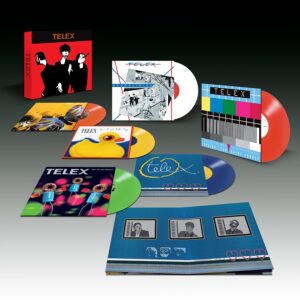 The ‘TELEX’ box set is released by Mute as a 6 piece set in coloured vinyl LP and CD variants on 14th April 2023, pre-order from https://mute.ffm.to/telex_boxset
The ‘TELEX’ box set is released by Mute as a 6 piece set in coloured vinyl LP and CD variants on 14th April 2023, pre-order from https://mute.ffm.to/telex_boxset
https://mutebank.co.uk/collections/telex
https://www.facebook.com/ThisIsTelex
https://www.instagram.com/this_is_telex/
https://www.facebook.com/danlacksmanmusic
https://www.facebook.com/explusguests
https://open.spotify.com/artist/6PzO2zYVuLxLwhZJfnP1Wj
Text and Interview by Chi Ming Lai
3rd February 2023

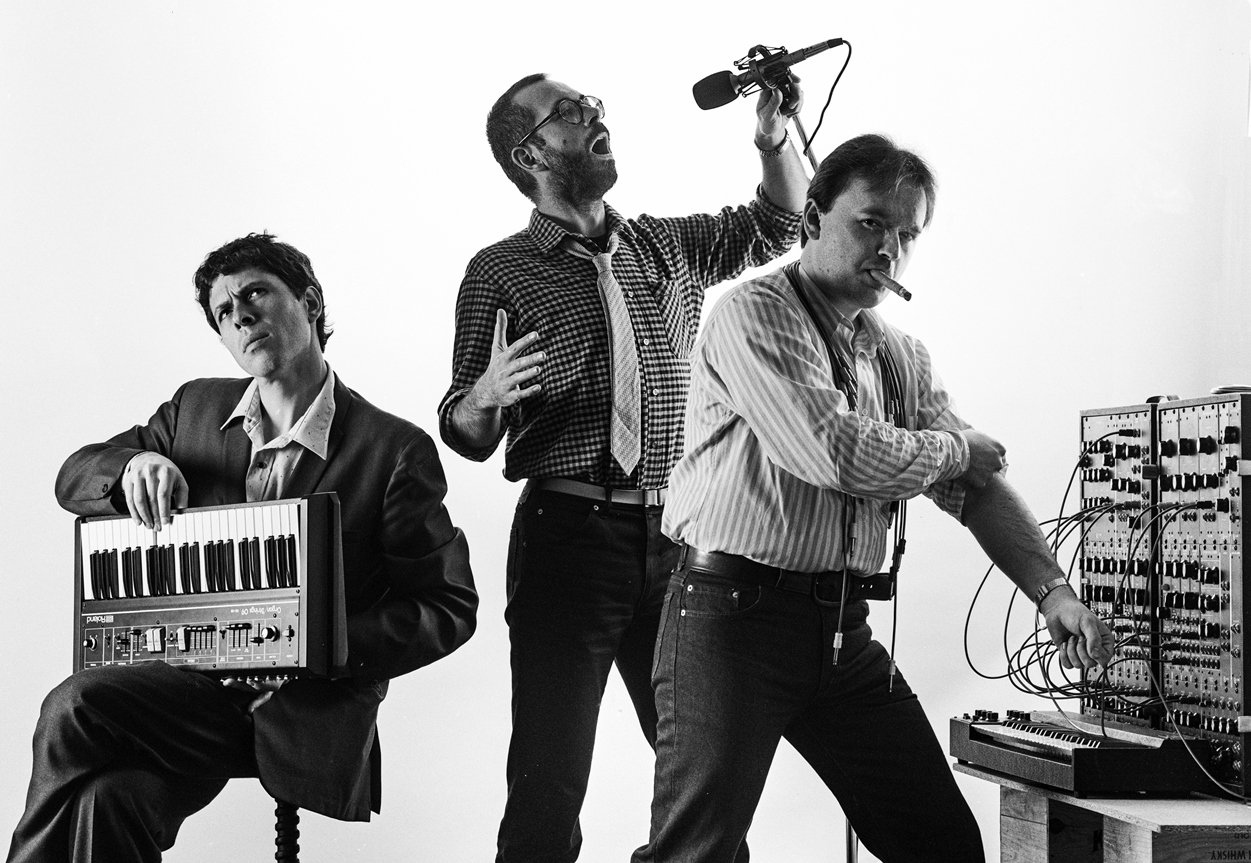
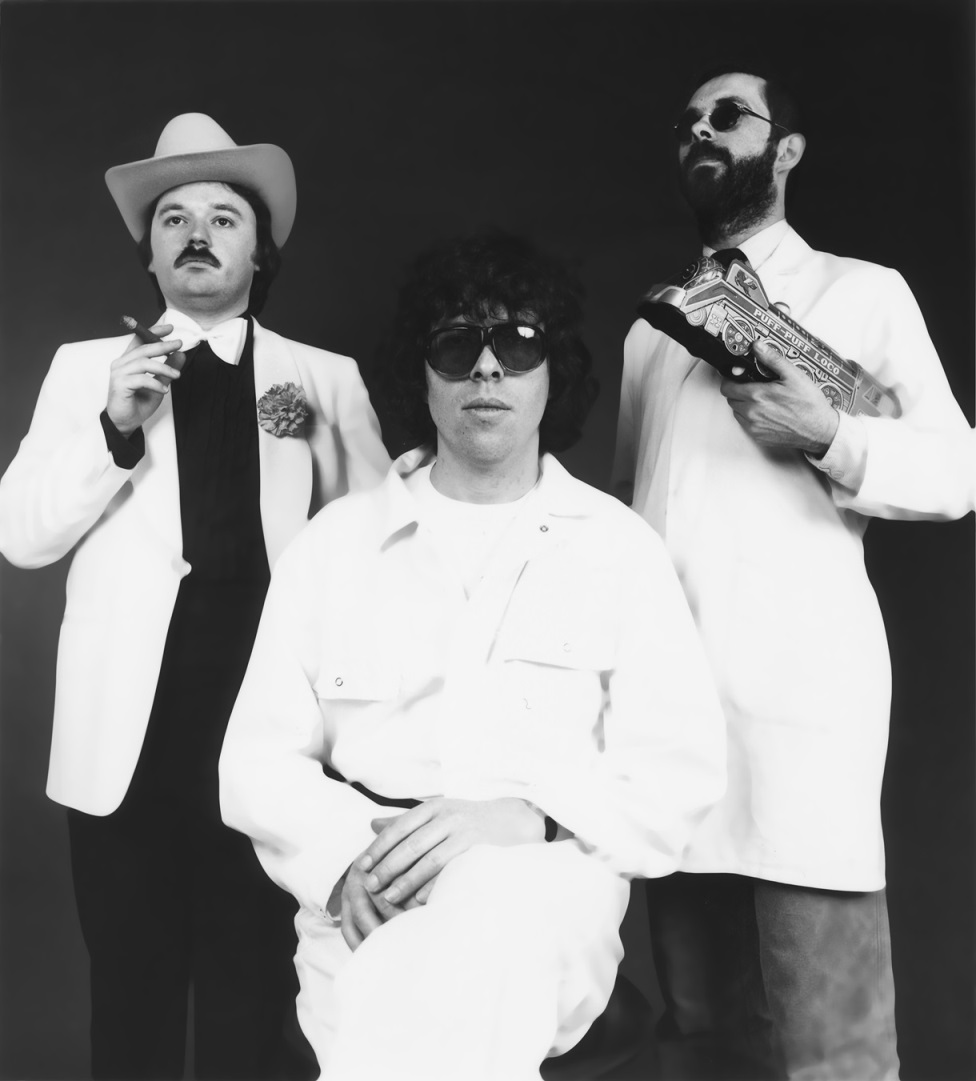
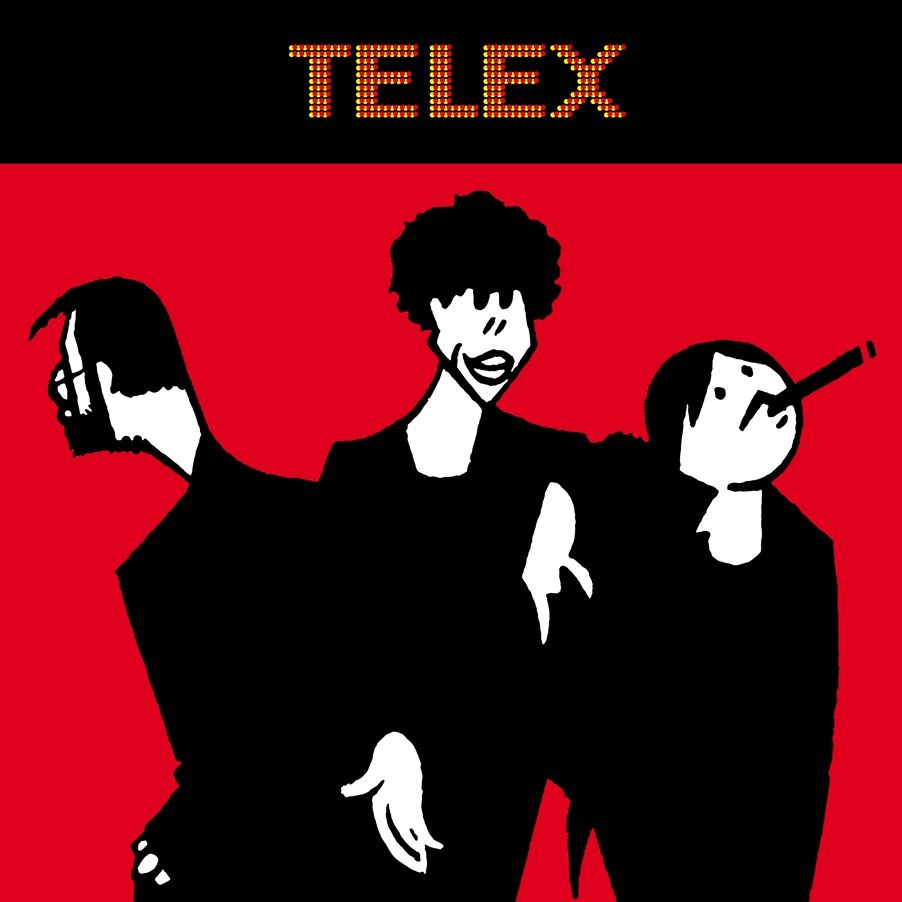



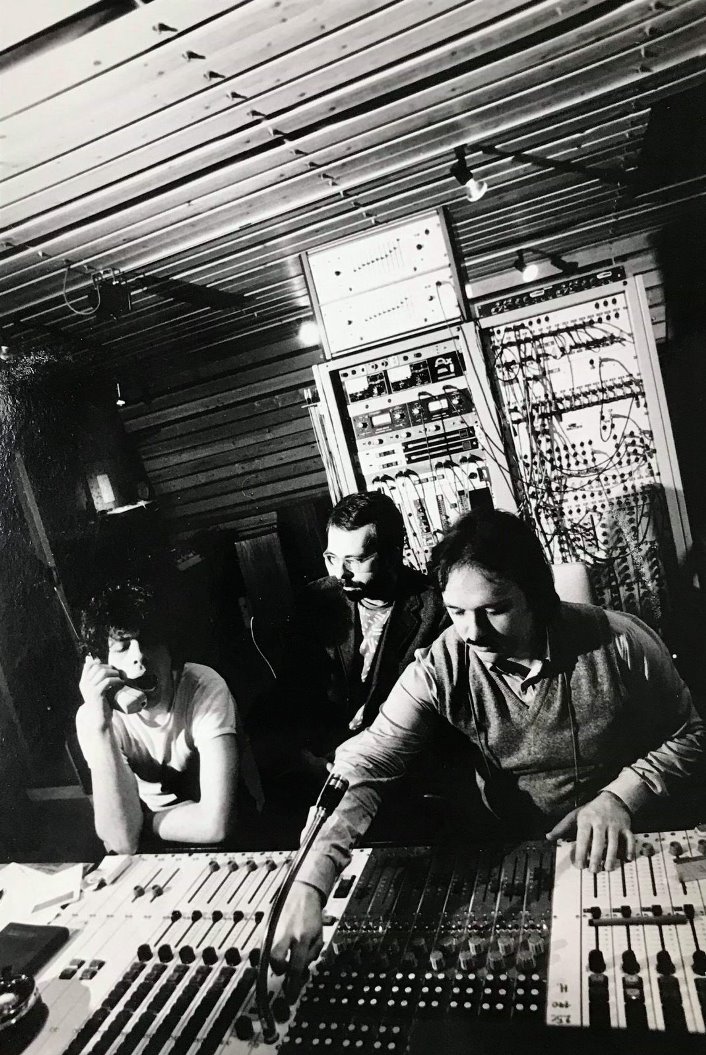
Follow Us!